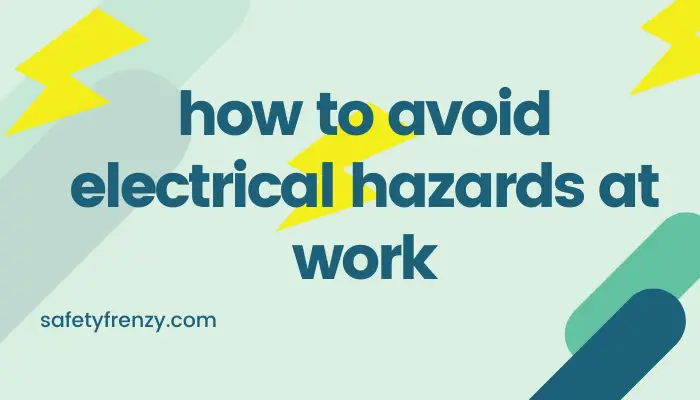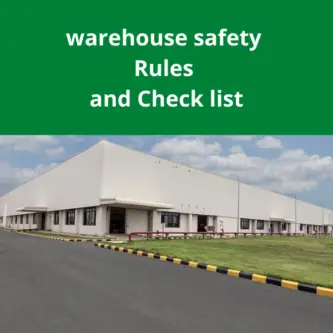Never miss with electricity
Electrical hazards are around us every where, i.e at home, at work and even at markets and shops. So its important to know electrical hazard around you. In this article I will discuss how to avoid electrical hazards at work.
However I’m an electrical engineer with more than ten years experience, I never miss with electricity at home or at work.
Electricity doesn’t know what kind of expert you are, It always wait the chance to chock you or even kill you.
Electrical Hazards Examples
Hazard examples are listed below:
- Damaged insulation of electric cords
- Repairing an electrical panels while it is energized
- Working near overhead power line with heavy truck
- Working in electrical work with wet hands
- Using old damaged electrical equipment without any safety inspection
- Working with hand tools not properly insulated or designed for electrical work
- Using electrical measurement tools like AVO-meter with lower voltage rating than the measured source.
- Unqualified/unauthorized person work in electrical high voltage panel
- Working under rain in an electrical panel
- Extension connections without any calculations, that can cause overloading.
- Connecting non explosion proof electrical equipment in a classified zone.
- Using explosion proof electrical equipment but under the requirements of the zone, like connecting zone 2 device in zone 0 area
- Energizing a current transformer while its secondary is open, this is really dangerous hazard that can cause an explosion.
- Connecting low voltage device on high voltage source, this will cause device burning and short circuit
Electrical hazards at work
Electrical hazard at work is dangerous and the degree of the hazard depends on the workplace nature. For example working at office has less hazard than working at workshop, construction site or electrical power plant.
How to avoid electrical hazards at office
Always deal with electricity with safety rules to be safe, The following tips are important to avoid electrical hazard if you are working at office.
- Don’t fix or maintain any electrical issues or devices at work unless you are electrician or electrical engineer. “Always ask professionals for help“.
- Never overload outlets with many devices, Just use one device at one outlet. If it is necessary to use more than one device at the same outlet so you must ask an electrical engineer to check if this is safe.
- Check any new devices voltage and current before connecting it to the power. Some devices are designed to work at special voltage so double check before connection.
- Read users manual for new devices and check for any electrical safety precautions.
- Switch off any unused devices, And its much recommended to unplug unused devices.
- If you are using electrical space heaters at office, Make sure it :
- 1 meter away from any flammable material.
- Has auto power off in case of falling on the floor.
- Has a timer for its power off, In case you forget it working and left the office this timer will switch it off.
- Only use high quality space heaters.
How to avoid electrical hazards at work “non office workers”
Working at workshop, construction site or electrical power plant is more dangerous than working at office. Workplace electrical safety rules are as following :
- Follow the organization safety rules. Every organization has its own safety rules and PPE program, Commit to the program for your own safety.
- Before connecting any electrical device double check the voltage rating of the device and the power supply
- Use LOTO for power isolation. If you are an electrician always use power isolation lockout and tag-out system.
- Keep away of electrical panels, cables and circuit breakers.
- Wear safety personal protective equipment for the job.
- Record and report any unsafe electrical condition to your manager to decide what to do about it.
- Only authorized and well trained electricians are allowed to work near energized or electrical devices.
- If you are an electrician and you don’t know what to do a task please ask your supervisor for support.
- Keep an eye on safety electrical caution signs at workplace.
- Limit extension cords use. Only temporary short time operations, And ask an authorized electrician to help you to use it safely.



